As soon as you step foot on foreign soil, unless you truly look the part of a local which is highly doubtful (especially when your bags are in tow) chances are there will be some people out there looking to take advantage of you. And no, this article was not written to have you believe that the vast majority of people or countries mean to cheat you, it’s just good travel sense and advice to be aware of that will help keep you from giving up that additional travel money. And that word ‘scam’ could also be swapped with cheated, lied to, taken advantage of, etc. Simply put, when you’re out there, traveling the world or even just one particular country, you are bound to be a target.
In fact, I hate to admit it, but I didn’t get scammed and cheated just once or twice when on the travel road. Oh no, I had been a travel victim countless times. I learned a lot over time and never had the same scam pulled on me twice but I want to help keep you from becoming another travel scam statistic. Hopefully a couple of these tips will help keep the frustration levels to a minimum when the time comes. And yes, it will come. No one is immune to having someone try to cheat you, overcharge you or otherwise try to take advantage of you as a traveler. And no, this is not country specific. After traveling through more than 25 countries over 4 continents, this stuff happens everywhere…
How to Avoid Travel Scams
Tip #1 – On How to Avoid Travel Scams
As a general rule, anytime someone is approaching you (not the other way around) and offering to ‘help’ you by providing a service, chances are they are going to try to take advantage of you somehow, typically by trying to get you to buy their product or service for way more than its worth. This is everyone from a street vendor, taxi driver, or even the folks trying to offer you a place to stay or show you around town. In my mind, the more aggressive they are, the better chance I have of losing money in the transaction.
When I first arrive to a city, the first thing I do is pay attention to what the locals do. Are they taking the bus, the metro, taxis, or tuk tuks? Are they shopping in certain stores and markets and avoiding others? Chances are, the things they avoid are the things you should too. Although you are a tourist, try to avoid being one. Do as the locals do. You’ll save a lot more money in the process. I do this by doing what they do, eating where they eat, and spending time in the places they do. Try to avoid all the ‘touristy’ destinations as a general rule. Or at least try to limit your time in these places. Most things will be two and three times as expensive in these places than everywhere else… A couple great examples of this is a taxi driver that approaches you instead of the other way around or when going to a tourist market to buy something where they are very aggressive in sales tactics vs going to the local market. Avoiding those that approach you (unless a fellow traveler) can also help you steer clear of any local scam artists.
Tip #2 – On How to Avoid Travel Scams
In stores, hotels and other situations when no price is displayed or given, try to act like you know the price of whatever it is you’re about to purchase. This display of confidence can send the message that although you’re an obvious foreigner, you’re not a ‘weekend tourist’ and it can portray that you’ve bought there before. An easy way to do this is to just hand over a bill that seems like it should be in the ballpark. If you hand over too much, they may try to charge you too much but advancing money before they shout out a price can show them you know what something costs. An example of some situations you can encounter where no price may be displayed is when you are at a local market or convenience store. Another good example is when taking a taxi or tuk tuk in a city that doesn’t regulate or post prices or rates. So what is the best way to counteract this when it seems it didn’t work? Well, you can balk at the price when its given or act as if they are trying to cheat you. Very often, you’ll find they’ll change the price very quickly, especially if you try to walk away. With taxis and tuk tuks, you may not have this option so it can be good to settle a price up front.
Tip #3 – On How to Avoid Travel Scams
Get behind a local and see what they pay. This can be cumbersome and require you to play the waiting game to time things right but is very effective in stores and markets. I know this method works as I’ve often seen the disappointment on the face of some store owners when I’m in line to purchase the same exact thing as the local in front of me. It’s an opportunity they will miss when trying to overcharge me. Asking a fellow traveler or local that you trust can be a great way to find out the true price as well. This could be as easy as asking those that work at the hostel or hotel you’re staying in. You won’t be asking them the cost of an apple (you could) but you can surely ask the going rate on what it costs to get from their hostel or hotel to the train station, airport, etc by taxi.
Tip #4 – On How to Avoid Travel Scams
Should you just ask the price of something beforehand if it’s not displayed? This can be a good practice and can save you money in the long run, however there are pros and cons with this. When you ask the price up front for something you’ll at least be in a better bargaining position and less chance of being roped into buying something than if you hadn’t. 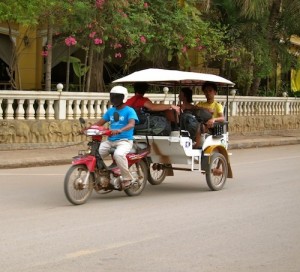 A great example is getting a price from a taxi or tuk tuk driver up front before ending up to your destination and then finding out he or she is trying to charge you three times what you thought it would cost. However, the problem with this strategy of getting a price up front is that fact that it shows you truly don’t know the price, allowing someone to make up any price they want. If you find yourself in this situation, see tip #2 and try to follow in line behind a local. If none are around and you have time before purchasing (such as when paying for more expensive things like a bus ticket from one city to another from the local ‘agency’) do some research or ask a local to help you out or have them buy the ticket for you. I had done this in many different countries across both Asia and India since I kept encountering the same problems if I hadn’t done so. By the way, if you want to learn more about how to avoid taxi scams, see my article here on ‘Avoiding Tut Tuk and Taxi Scams‘
A great example is getting a price from a taxi or tuk tuk driver up front before ending up to your destination and then finding out he or she is trying to charge you three times what you thought it would cost. However, the problem with this strategy of getting a price up front is that fact that it shows you truly don’t know the price, allowing someone to make up any price they want. If you find yourself in this situation, see tip #2 and try to follow in line behind a local. If none are around and you have time before purchasing (such as when paying for more expensive things like a bus ticket from one city to another from the local ‘agency’) do some research or ask a local to help you out or have them buy the ticket for you. I had done this in many different countries across both Asia and India since I kept encountering the same problems if I hadn’t done so. By the way, if you want to learn more about how to avoid taxi scams, see my article here on ‘Avoiding Tut Tuk and Taxi Scams‘
Tip #5 – On How to Avoid Travel Scams
Always count the money you are given in return. I know it sounds like basic advice but when you’re not familiar with the foreign currency you are using in a new country, it can be much easier for someone to try and cheat you especially since you won’t be as used to counting it up quickly while still standing there at a register. Of course, it is always good practice to do this but after having been given back the wrong change on many occasions in several different countries, it didn’t take long for me to figure out that most of these people weren’t just bad at math!
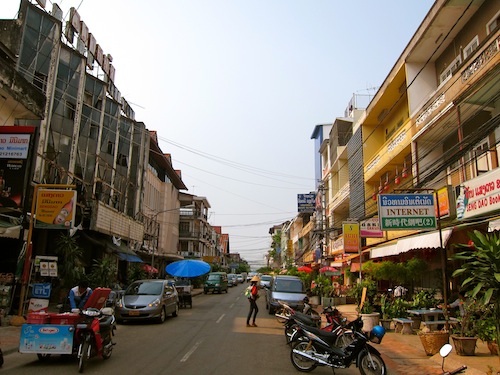
To sum things up, stay aware and pay attention when on the travel road… Those looking to cheat you will be much less apt to try to do so when they see you are fully aware of what’s going on and that you will call them out if and when something just isn’t right. And of course, if its doesn’t feel right, in any situation, you’ll know and this gut feeling is sending you a clear signal to either walk away or verify that you’re not being scammed. And sorry to say but sometimes, experience is the best teacher in these situations. Hopefully some of these tips I write here will stick with you but for those that don’t, as soon as you find yourself the victim of one of these situations, rarely will that same situation ever repeat itself. It’s just like that experience of walking into a store the first day, buying something for a set price and then doing it the same the next day and then being charged a different price. Hmmm, you wonder. Did they make a mistake or was I cheated. Over time, you”ll learn to trust your instincts and will be much less likely of finding yourself in bad situations as your travel experience and knowledge grows. More tips on how to avoid travel scams are to come…And if there are any other tips from fellow travelers out there that want to share stories or advice, we’d love to hear from you!






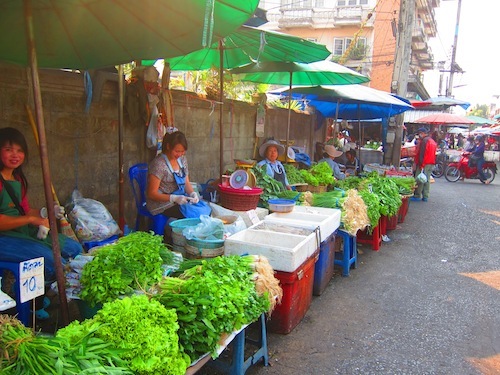

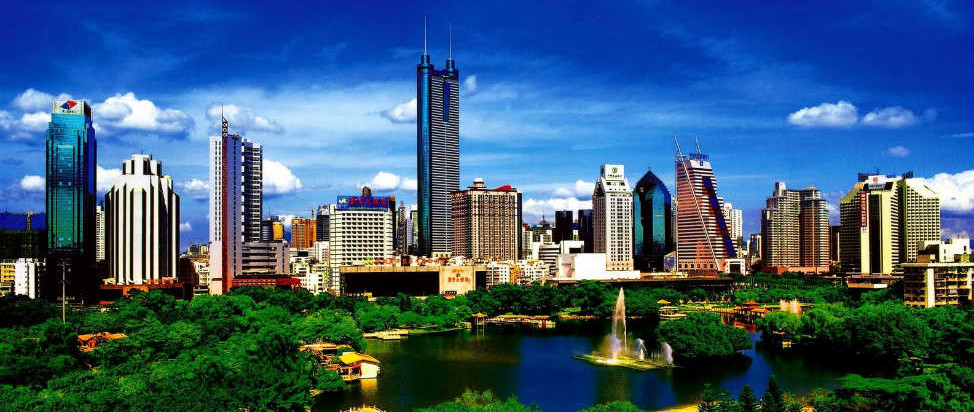

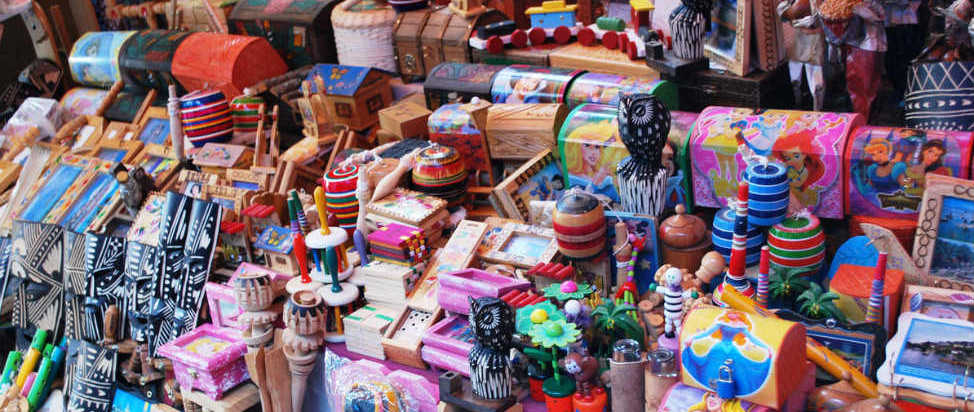

0 Comments... Be the first to comment